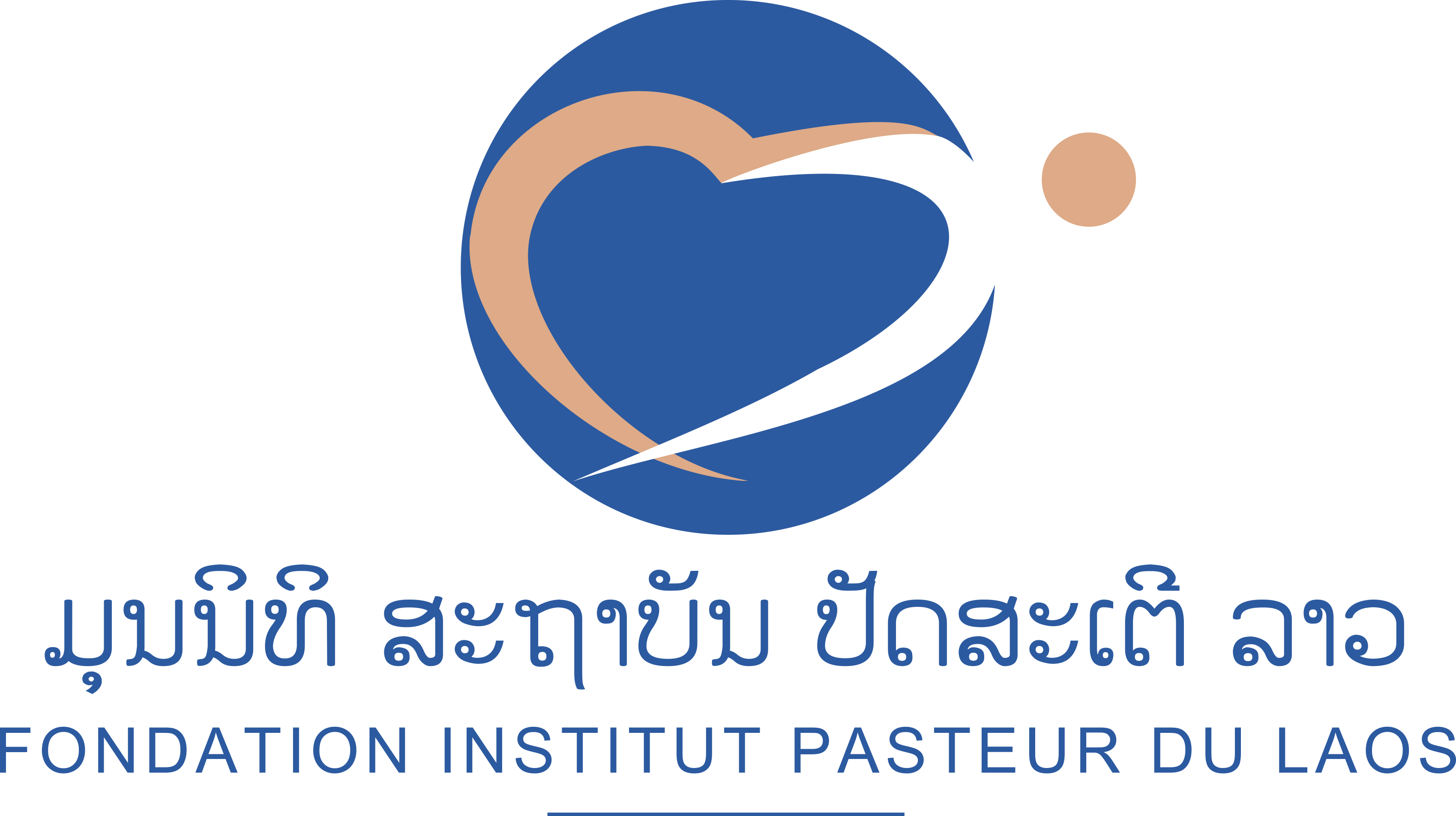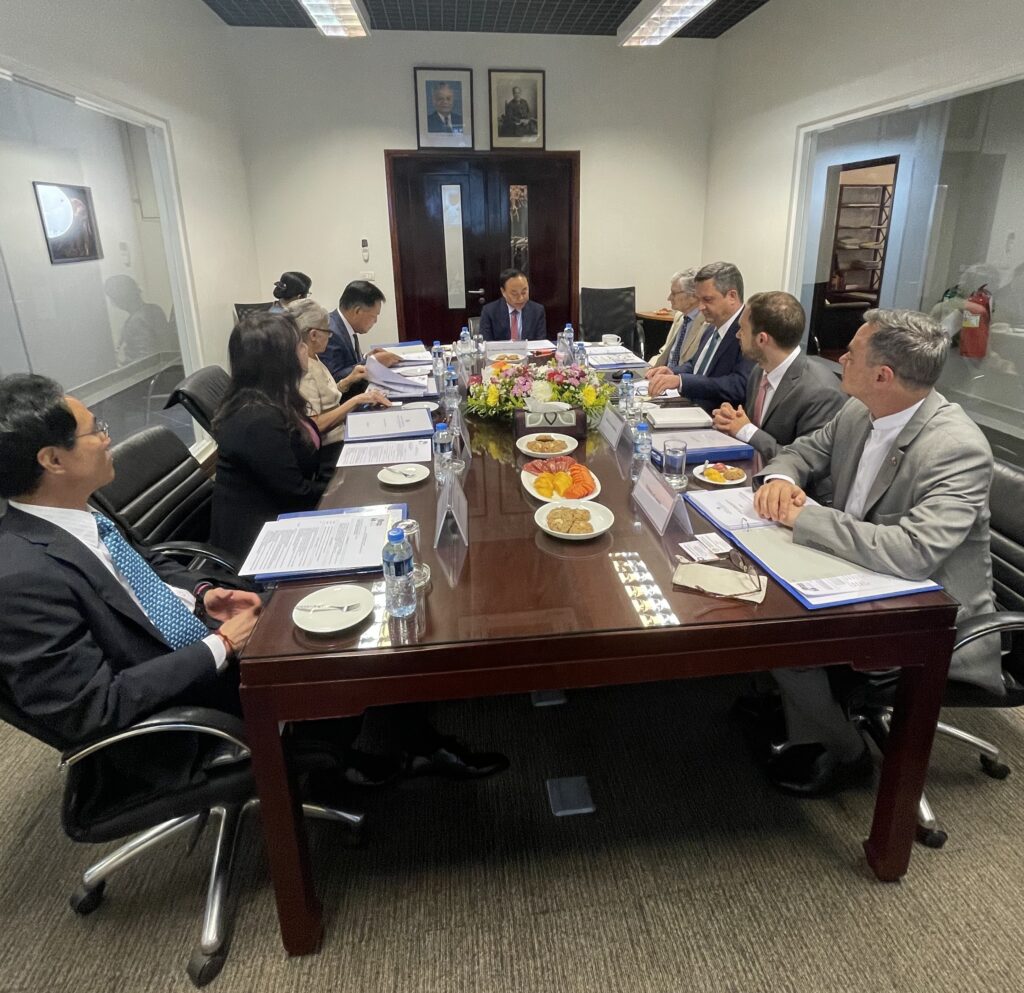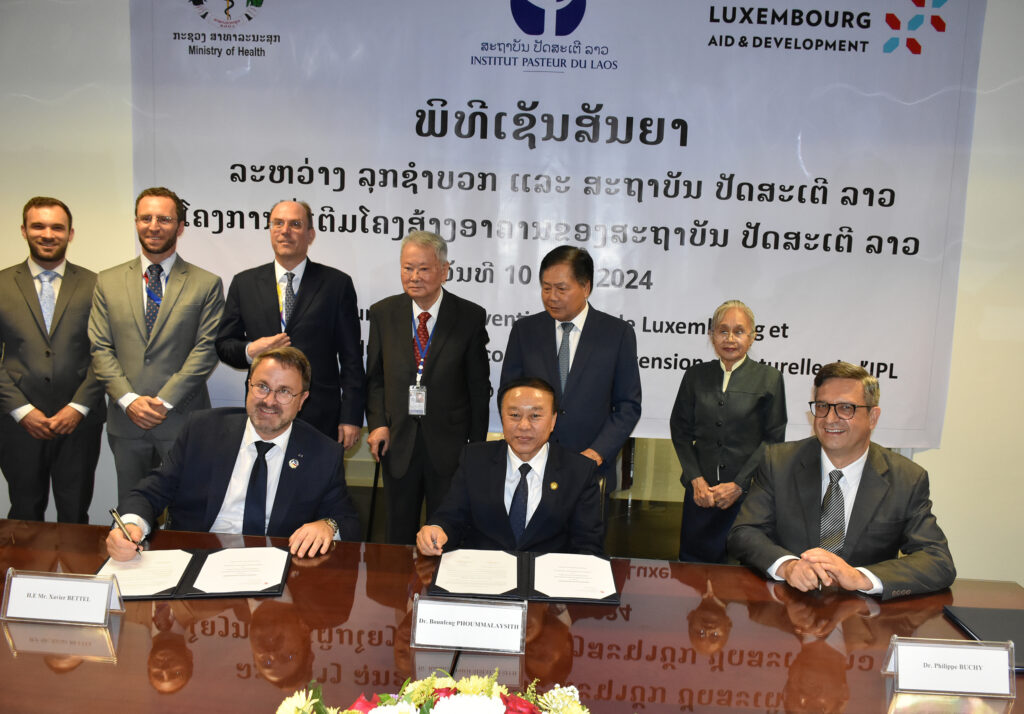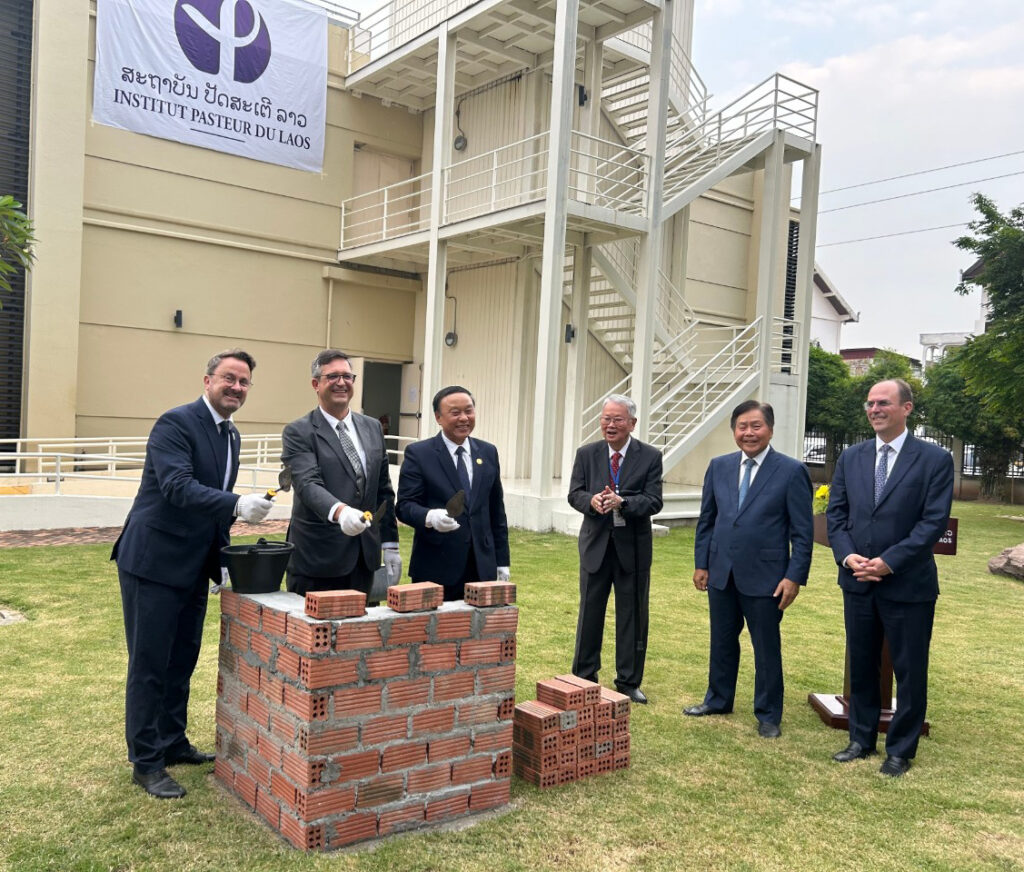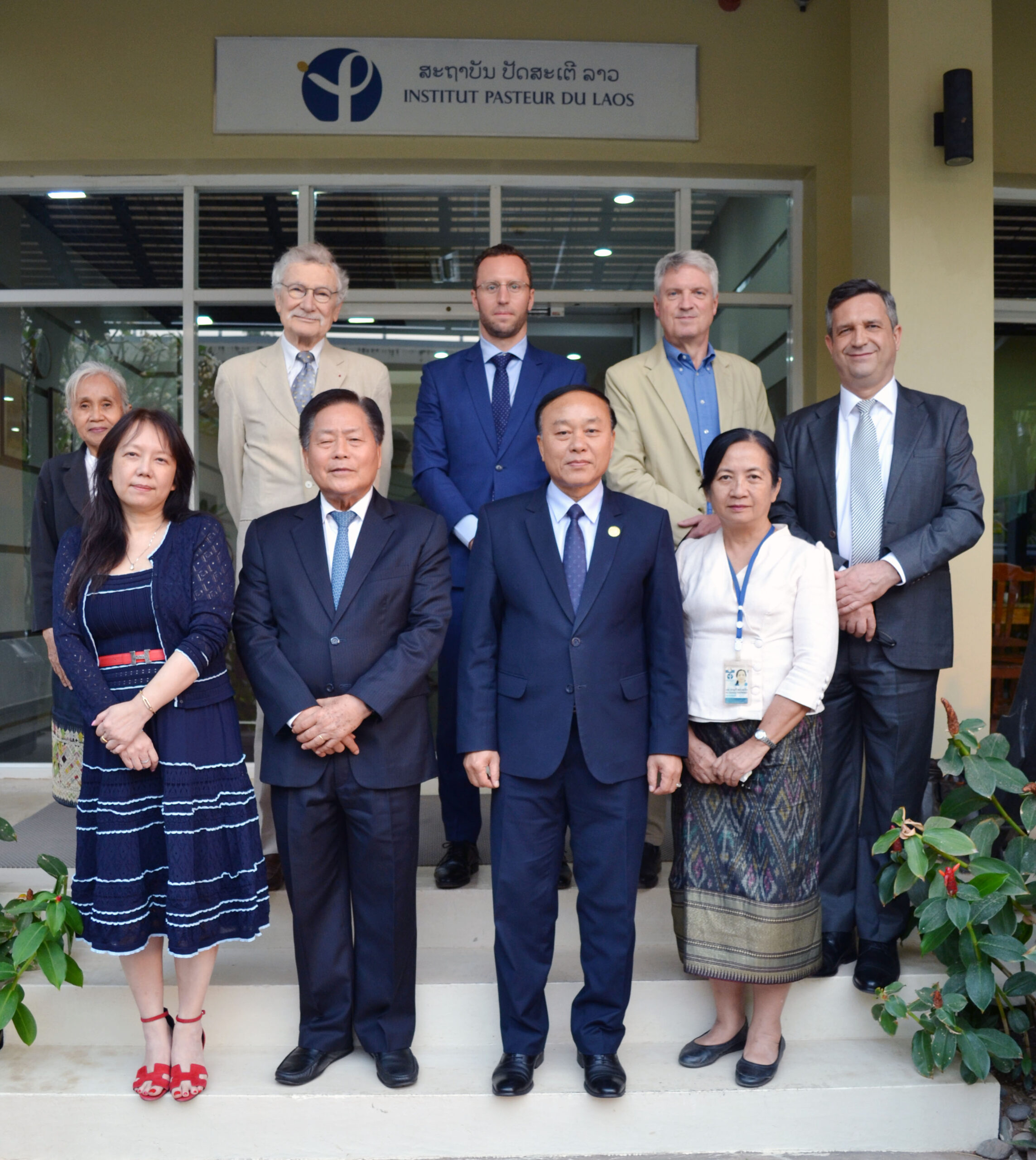Arboshield Project
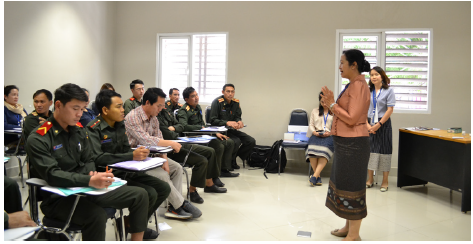 Project Coordinator: Dr. Darouny Phonekeo
Project Coordinator: Dr. Darouny Phonekeo
Assistant Coordinator: Dr. Phonepadith Khattignavong
Consultant: Dr. Philippe Cavailler
Staff members in Parasitology lab: Dr. Moritoshi Iwagami, Dr. Phoyphaylinh Prasayasith, Ms. Pheovaly Soundala, and Ms. Sonesimmaly Sannikone
Finance and administration: Dr. Antoine des Graviers and Ms. Phouvanhnamalee Vilaysouk
Background and objectives
The military sector in the Lao People’s Democratic Republic (Lao PDR) covers a certain portion of the Lao population including their family. The Lao Ministry of Defense has a medical institute in the Vientiane capital and several hospitals across the country. However, unfortunately, the Lao Ministry of Defense has limited support from donors to improve their capacity and facilities since most of the donors hesitate to support the military sector. On the other hand, several studies reported that soldiers are at high-risk population for malaria infection because they patrol and stay in the forests where malaria and other vector-borne diseases are highly prevalent [1,2]. Moreover, our previous study found household clustering of asymptomatic malaria infections which means malaria is transmitted by the Anopheles mosquito within a family [3]. These results suggested that even though malaria is not frequently transmitted in a village nowadays, malaria can be introduced by their family members who work and stay in the forests.
The objective of the Arboshield project is to strengthen the capacity of the medical sector in the Ministry of Defense and some of the selected civilian hospitals in the Ministry of Health, Lao PDR in the areas of vector-borne diseases, especially surveillance, outbreak detection/ response, diagnosis, treatment, prevention, as well as biosafety and security through training and improving their facilities. The roles of the Lao-Japan Parasitology lab in this project are giving a training course on malaria for the trainees from military sector and civil sector, and quality assessment of malaria diagnosis in the Lao Institute for Disease Prevention and six military provincial hospitals (Xieng Khouang, Luang Prabang, Vang Vieng, Vientiane Capital, Savannakhet, and Champasak), which participate in the Arboshield project.
Results of quality assessment for malaria diagnosis
Blood samples were collected from 20 malaria suspected patients in the military hospitals and transported to IPL in 2021. The samples were diagnosed by RDT and nested PCR for malaria. As of 1st November 2021, only one sample was PCR positive for Plasmodium vivax while all RDT were negative for malaria. These results showed that the sensitivity of the malaria PCR is higher than that of the RDT. Thus, a highly-sensitive diagnostic method like PCR is necessary for accurate diagnosis for malaria case management and control in Lao PDR. It is noted that the number of malaria suspected cases in the military hospitals in the Arboshield project are decreasing from 2019 (n=320), 2020 (n=39) and 2021 (n=20). This may indicate improvement of malaria prevention and control among the military sector in Lao PDR.
Malaria survey for Lao military personnel in Savannakhet province
A malaria survey for Lao military personnel was conducted at the 4th Brigade Division, Savannakhet province from 17-24 June 2019. A total of 593 military personnel who had no signs and symptoms of malaria participated in this survey. An interview survey was performed using a structured questionnaire for the personnel (n=300) showing that3.7% (11/300) had not heard of malaria. For the remaining 289 participants, 63.7% (184/289) knew that malaria is transmitted by mosquito bites. However, 23.9% (69/289) answered that malaria infection occurs “by drinking dirty water”, 9.3% (27/289) by “Drinking stream water in forests” and 3.1% (9/289) by “Cough or sneeze.” All the participants (n=593) tested negative by malaria RDT. Dried blood samples were collected from the participants (n=593) on filter paper (FTATM Classic Card, GE Healthcare Life Sciences, WhatmanTM, UK) for PCR analysis. Genomic DNA was extracted from all the filter papers by using QIAamp DNA Mini Kit (QIAGEN, Germany). Malaria screening by nested PCR was performed and only one sample was PCR positive for P. vivax (0.17%; 1/593). This PCR analysis was performed by the Arboshield trainee: Dr. Phouniloud HONGVANGTHONG under the guidance of the staff in the Lao-Japan Parasitology Lab.
Financial support
This project is financially supported by The Defense Threat Reduction Agency (DTRA), USA.
References
1. Iwagami M, Keomalaphet S, Khattignavong P, Soundala P, Lorphachan L, Matsumoto-Takahashi E, Strobel M, Reinharz D, Phommasansack M, Hongvanthong B, Brey PT, Kano S. The detection of cryptic Plasmodium infection among villagers in Attapeu province, Lao PDR. PLoS Neglected Tropical Diseases, 11(12): e0006148, 2017.
2. Vilay P, Nonaka D, Senamonty P, Lao M, Iwagami M, Kobayashi J, Hernandez PM, Phrasisombath K, Kounnavong S, Hongvanthong B, Brey PT, Kano S. Malaria prevalence, knowledge, perception, preventive and treatment behavior among the military in Champasak and Attapeu provinces, Lao PDR: a mixed methods study. Tropical Medicine and Health, 47:11, 2019.
3. Pongvongsa T, Nonaka D, Iwagami M, Nakatsu M, Phongmany P, Nishimoto F, Kobayashi J, Hongvanthong B, Brey PT, Moji K, Mita T, Kano S. Household clustering of asymptomatic malaria infections in Xepon district, Savannakhet province, Lao PDR. Malaria Journal, 15(1): 508, 2016.

